NRL 2022: Caroline Layt warns transgender ban will send athletes ‘underground’
Players will hide the fact they are transgender due to new IRL rules and, according to rugby league’s first transgender player, some are already doing so.
NRL
Don't miss out on the headlines from NRL. Followed categories will be added to My News.
Australia’s transgender athletes are set be forced “underground” to compete at major international sporting events, which could include the 2022 Rugby League World Cup.
This is the message from Caroline Layt, rugby league’s first openly transgender player and a member of the 2007 women’s NSW Origin side.
Now 56, Layt has condemned this week’s decision by both FINA and the International Rugby League (IRL) to ban trans athletes from women’s swimming and footy.
The retired Origin winger says she has already urged one fellow transgender athlete to now continue playing her own sport anonymously and expects others to do the same.
Despite the IRL decision, Layt is also offering to meet with ARLC chair Peter V’landys and discuss the role of transgender athletes in the increasingly popular NRLW competition.
Only last month, the Sydneysider outlined in detail her incredible rise to State of Origin, which included being bashed by teammates and having a bounty placed on her head.
Asked what impact these latest bans would have on both transgender athletes and the wider community, she added: “This says to trans athletes ‘hide away, you’re not worthy’.
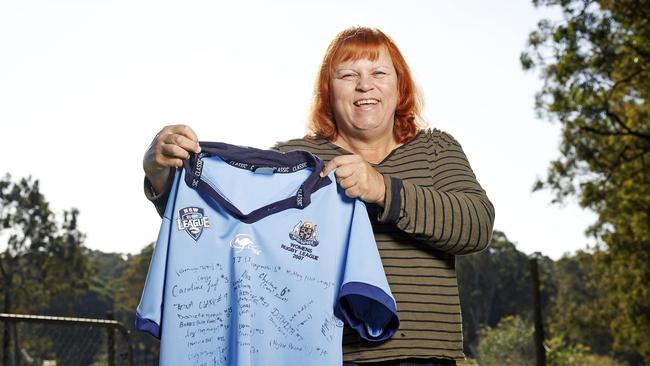
“Hide away because there is nothing here for you.
“And, initially, this is what I did in my own career too. I hid away.”
The bans also create a host of new questions including how organisations like the IRL intend to enforce any new rulings, particularly if an athlete chooses not to ‘out’ themselves.
Asked if a transgender player could still appear at the women’s Rugby League World Cup later this year, Layt said: “I’m not saying it will happen, but it could.
“Because there are no prizes for honesty. These bans, it’s like they want to make people lie.
“So people are going to fly under the radar.”
Layt also questioned how the IRL could ban transgender women from competing given her own history of doing exactly that all the way up to State of Origin level.
“There’s a precedent,” she said.
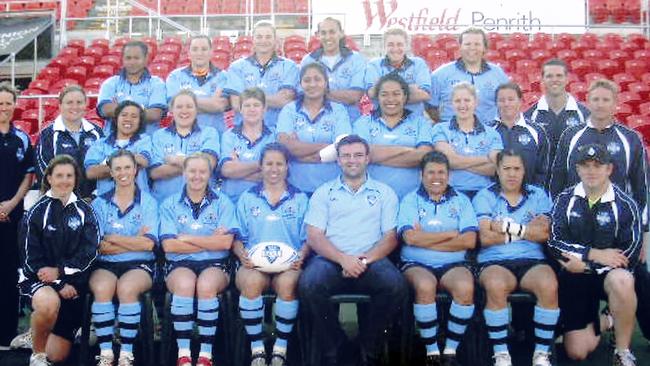
“I’ve played for NSW. I’ve played nationals in rugby league, played nationals in rugby union and done so for over five years.
“And nobody was killed. Nobody was hurt.
“But now I’m not worthy? Now we just ignore all that?
“In the Origin game I played, Queensland won 38-16 — they flogged us.
“That’s why I’d love to have a conversation (with the ARLC) to discuss all this.”
FINA sent shockwaves through the sporting world over the weekend when it became the first major sports organisation to restrict transgender athletes from elite female competition. Swimming’s world governing body voted to ban athletes who have gone through male puberty from racing in women’s events.
They are instead looking at the establishment of an ‘open’ category.
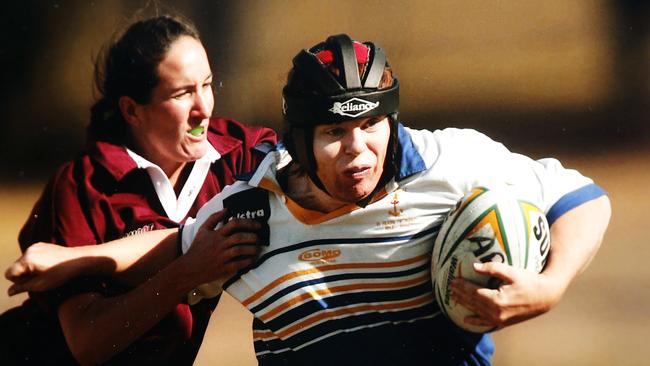
It follows the recent success, and subsequent controversy, surrounding American college swimmer Lia Thomas.
“It’s all so reactionary,” Layt warned.
“Is this because Lia Thomas doesn’t fit the bill of what swimming wants? So now rugby league jumps in too?”
As revealed on Tuesday, rugby league is now the second major sporting body to ban transgender athletes from competing in international events.
The IRL has decided male-to-female players will be unable to play in sanctioned international rugby league matches until further research is completed into the issue.
It means that transgender athletes will be precluded from competing at the World Cup, to be played in England later this year.
The IRL said that in reaching their position, they considered several relevant developments in world sport as well as the need to complete further research in the interests of avoiding unnecessary welfare, legal and reputational risk.
ARL Commissioners Wayne Pearce and Peter Beattie are Australia’s delegates to the IRL.
Human rights violation: Rugby league’s trans ban risk
Brent Read
Equality Australia has warned International Rugby League and other sport governing bodies that they risk violating fundamental human rights principles by considering blanket bans on transgender women.
“Blanket bans on women who are trans playing against other women risk violating international human rights principles of non-discrimination, which require such policies to start from a place of inclusion unless an exclusion can be justified as proportionate to any risks identified,” Equality Australia chief executive Anna Brown said.
“FINA failed to meet that standard, and the rugby league’s ban also fails to do so, despite it being temporary.”
News Corp revealed on Tuesday morning that the International Rugby League had decided that male-to-female players would be unable to play in sanctioned international rugby league matches until further research is completed into the issue.
Stream every game of every round of the 2022 NRL Telstra Premiership Season Live & Ad-Break Free During Play on Kayo. New to Kayo? Try 14-days free now >
It means that transgender athletes will be precluded from competing at the World Cup, to be played in England later this year.
The IRL said that in reaching their position, they considered several relevant developments in world sport as well as the need to complete further research in the interests of avoiding unnecessary welfare, legal and reputational risk.
Their decision came only days after FINA announced that transgender women were banned from competing in international events for females.
It is understood the IRL landed on their policy a fortnight ago but only informed their member nations in recent days.

Equity Australia characterised the ban as pre-emptive and urged the International Rugby League to ensure transparency of evidence and to prioritise consultation in the development of its policy.
“International Rugby League and other sporting bodies must consult with affected people and provide a detailed explanation of the evidence they are relying upon before they exclude players from the sports they love,” Brown said.
“Given the small number of trans athletes, the international principle of proportionately justifies taking a case-by-case approach – rather than imposing a blunt and harmful ban on everyone, no matter their differences.
“As sporting bodies consider their positions, they must put the human rights of all athletes front and centre, paying special consideration to the rights of trans people to be able to compete fairly at an elite level with others of their gender to the maximum extent possible.
“The fact is that women’s bodies – like all human bodies – are diverse. For powerful international sporting bodies such as FINA or International Rugby League to determine that only a particular type of woman can compete against other women sets a dangerous precedent, increasing discrimination against trans women.”
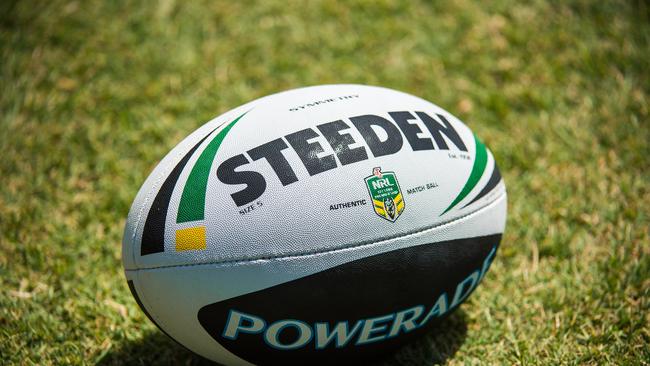
ARL Commissioners Wayne Pearce and Peter Beattie are Australia’s delegates to the IRL. The board is chaired by Troy Grant and includes New Zealand’s Greg Peters and PNG’s Sandis Tsaka. Among the independent directors of the International Rugby League board are New Zealander Greg Barclay, who is also the chair of International Cricket Council (ICC).
News Corp understands that delegate nations were informed of the IRL’s decision this week, which comes to light as swimming bans transgender women from competing in international events for females.
“The IOC concluded that it is the remit of each sport and its governing body to determine how an athlete may be at a disproportionate advantage compared with their peers - taking into consideration the differing nature of each sport,” the IRL said.
“In the interests of avoiding unnecessary welfare, legal and reputational risk to International Rugby League competitions, and those competing therein, the IRL believes there is a requirement and responsibility to further consult and complete additional research before finalising its policy.
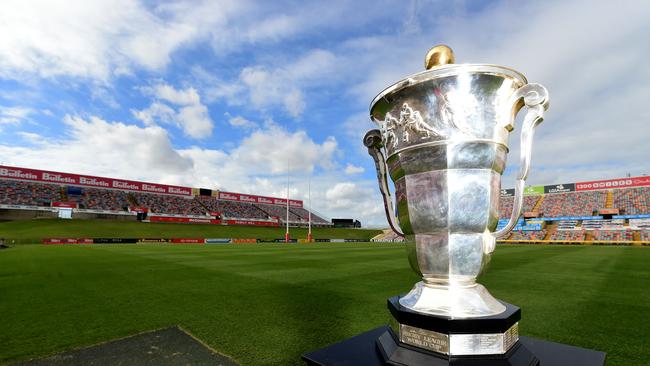
“The IRL reaffirms its belief that rugby league is a game for all and that anyone and everyone can play our sport. It is the IRL’s responsibility to balance the individual’s right to participate - a longstanding principle of rugby league and at its heart from the day it was established - against perceived risk to other participants, and to ensure all are given a fair hearing.
“The IRL will continue to work towards developing a set of criteria, based on best possible evidence, which fairly balance the individual’s right to play with the safety of all participants.
“To help achieve this, the IRL will seek to work with the eight Women’s Rugby League World Cup 2021 finalists to obtain data to inform a future transwomen inclusion policy in 2023, which takes into consideration the unique characteristics of rugby league.”




